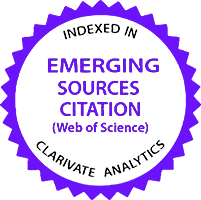Abstract— Accidents during critical maneuvering on roads while overtaking or changing lanes are mainly due to the insufficient generation of the stability matrices of vehicles, including yaw rate. The parameters responsible for stable operation of the vehicle during these driving scenarios may vary, causing improper steering angle input actuation to the vehicle, due to which the desired yaw rate is not generated. To overcome this problem, corrective yaw moments are applied to the yaw dynamics to generate the desired yaw rate and operate the vehicle within the defined stability limit. Therefore – in this paper – to improve the yaw stability of the vehicle, a novel yaw rate gradient-based control approach is proposed for a linear time-varying (LTV) bicycle model. A 2 degrees of freedom bicycle model with the linear approximation for low slip angles in the magic formula tire model is utilized to develop the LTV model. The longitudinal velocity and friction coefficient are chosen as the parameters of interest to be varied during model simulation. Two different critical driving scenarios, including a sine maneuver and a double lane change, are chosen as input actuation with and without corrective yaw moments. The obtained simulation results unveil that, by the application of steering angle with a corrective yaw moment, the yaw stability has effectively been improved by obtaining a feasible adaptive model predictive control solution. Additionally, the root mean square error (RMSE) is calculated to evaluate the performance of the proposed methodology. A RMSE of 0.0768 and 0.0395 for steering without corrective yaw moment (CYM) is decreased to 0.0234 and 0.0214 for sine and double lane change steering input with CYM, respectively. Moreover, the proposed methodology is compared with previous methods and found to have better yaw stability.
Keywords: Front steering; Corrective yaw moment; Bicycle model; Adaptive model predictive control; Yaw stability; Linear time varying model.
DOI: http://doi.org/10.5455/jjee.204-1676111104

![Scopus®_151_PNG-300x86[1]](https://jjee.ttu.edu.jo/wp-content/uploads/2024/03/Scopus®_151_PNG-300x861-1.png)
